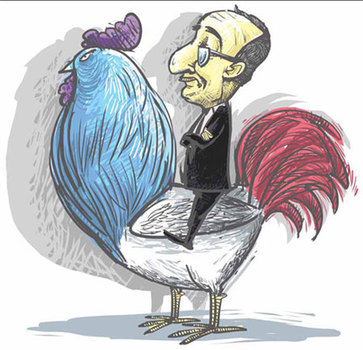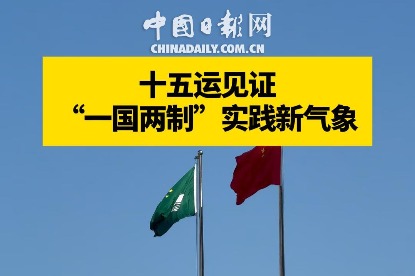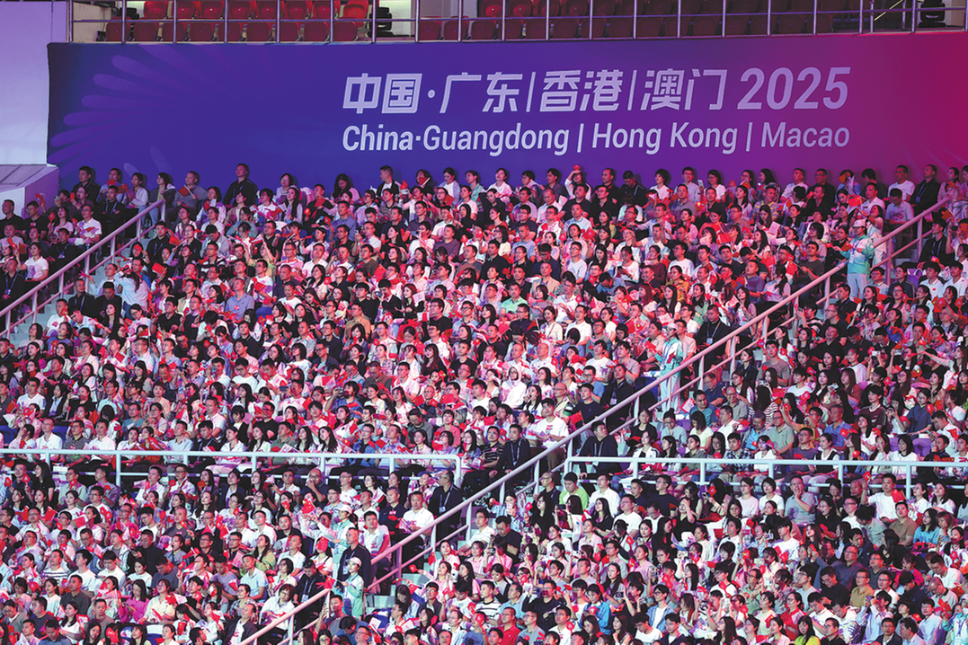National interest should guide France's China ties

New president has to shed ideological baggage to forge healthy relations
The French presidential election drew unprecedented attention from the Chinese as it unfolded over a six-month period, ending May 6 when the dust finally settled. Unlike elsewhere, where considerable attention was focused on the conduct of the beautiful Carla Bruni-Sarkozy and the private life of eventual winner Francois Hollande, in China, the interest was economic rather than prurient: the new leader would dictate the economic course of the country and the continent, which would have a direct bearing on the Chinese and global economies.
 |
| Zhang Chengliang / China Daily |
Although both Nicolas Sarkozy and Hollande wisely veered away from foreign policy as a key subject in the election debate, the Chinese public managed to elicit some information on their China policies from speeches - and reached their own conclusions.
Essentially, it boils down to this: Hollande has no experience of handling affairs concerning China. He has never been to China nor has he had any dealings with foreign affairs.
Conclusion: He is likely to take a hard-line stance on China.
The evidence was some of his utterances during the campaign. For instance, Hollande appeared to have said that it was "disgraceful" for debt-ridden France to accept China's "help"; that China should be held "responsible" for his country's trade deficit; and that differences between China and France should be resolved at the European Union-level.
Ordinary Chinese may not care much about recession or unemployment in France but they do care about the European debt crisis because they are closely related. In the latter half of last year, there was such widespread discussion about "whether China should help Europe" that a Beijing taxi driver had an animated discussion with the author about the relationship between the trend of the euro and the stocks he held.
The Chinese government has said that "to aid Europe is to help ourselves", but the current question is "how China can help Europe and in what way". The answer depends not only on China's ability but also on Europe's willingness.
If Hollande's words on China were not just election rhetoric but a starting point for his new China policy, it is safe to say that his understanding of globalization, interdependence and partnership is not profound; and he does not understand China's contribution to the French economy.
According to Eurostat, the European statistical agency, Sino-French bilateral trade volume in 2011 hit $53 billion (41 billion euros), up 17 percent compared with 2010. France's exports to China increased by 28.8 percent to $18.68 billion. While China is the fastest growing market for France's exports, France's imports from China grew by 11.5 percent in 2011 to $34.32 billion. The French trade deficit reduced by 3.9 percent to $15.64 billion, showing trade is marching toward balance, which means Hollande is behind the curve when blaming China.
Besides, it goes against the grain of common perception that Hollande is an intelligent and rational leader if he refuses aid from a major economic and strategic partner due to "face", thereby losing an opportunity to revive the economy.
However, for close observers of Sino-EU and Sino-French relations - who were also keenly looking for signs of Hollande's China policy - there were promising portents.
One example is that he said he "does not reject products from China" and only hoped there would be a trade balance between the two sides. Another is his display of cultural sensitivity when he visited the Chinese community in Paris during the Spring Festival.
With the new president facing numerous travails internally, sacrificing Sino-French relations built on a solid foundation at the altar of a hard-line stance is unnecessary
Another possible clue for Chinese observers to predict the new president's China policy is his identity as a left-wing Socialist. China's experience of dealing with the Socialist Party can be traced back to another Francois in the 1980s and 1990s, when Mitterrand was the president for 15 years. The left-wing politics were characterized by a distinct stress on ideology, leaving people with an impression that he was meddling in sensitive issues such as human rights and Tibet. During his presidency, France's weapon sales to Taiwan put Sino-French relations on a rocky path.
Although this is not the right moment to discuss these problems, the Socialist legacy and Hollande's unfamiliarity with China raise concerns that the same issues may affect the established political agenda of the two countries.
It is also not easy for Beijing to find reference from historical experience and tradition to deal with the Socialist Party. When right-wing Sarkozy crossed the line on the Tibet issue, General de Gaulle's contribution to Sino-French relations served as an inspiration to find a solution.
However, as Hollande said after the victory, he will be the president of all French people. It shows that the interests of the country and the people are the basis for his policies of external relations and China affairs, instead of the stance of his party.
The answer to which stance he will take to deal with China, hard line or pragmatic, should be clear. France has always emphasized it has a strategic, long-term and overall policy on China due to its historical experience and its status on the global arena. Even if Hollande is unwilling to accept China's "help" in the debt crisis, he has no reason to reject China, which can provide French commodities with a growing market and French people with jobs.
Besides, China and France play an important role in international affairs. Cooperation between the two sides is vital in aspects such as promoting multi-polar politics, active participation in global economic governance and dealing with regional and international hot-button issues. Building a favorable international environment is also consistent with the interests of France.
That said, as a result of internal pressures and the president's unfamiliarity with China affairs, Sino-French relations might go through some turbulence initially but the two sides will sooner or later be able to find a practical and effective way to get along as the world copes with an economic crisis.
In short, France's interests do not allow for impractical ideology.
The author is director of European Studies of the China Institute of International Studies. The views do not necessarily reflect those of China Daily.
Today's Top News
- China warns Japan against interference
- Nation's euro bond sale shows investors' confidence
- No soft landing for Tokyo's hard line
- Commerce minister urges US to increase areas of cooperation
- Strong demand for China's sovereign bonds signals global confidence
- Ministry urges Japan to 'maintain self-respect'






























